Welcome to winter in Portugal
Despite the impressions you might get from reading our posts, not everything in our lives revolves around food and travel. Most of our days are consumed by the mundane, day-in day-out routines of just living on this planet. This post could be part of a series called “How we live in Portugal”.
For friends and relatives back in the US, and for readers contemplating a move to Portugal, here is a peek into one aspect of our life here. For readers already in Portugal, or other parts of Europe, feel free to compare your experience to ours and pat yourselves on the back that you’re doing it better.
The Song in My Head
There’s a lyric from Simon and Garfunkel’s “The Sound of Silence” that’s been playing in my head recently.
In restless dreams I walked alone
Lyrics from Genius.com
Narrow streets of cobblestone
‘Neath the halo of a street lamp
I turned my collar to the cold and damp
When my eyes were stabbed by the flash of a neon light
That split the night
And touched the sound of silence
There are two parts of that lyric are particularly appropriate to life in Portugal during winter.
Cobblestones
First is the part about “narrow streets of cobblestone”. The calçadas, or Portuguese pavement, are everywhere. We’ve written about them before. They are a ubiquitous part of daily life in Portugal.
Sometimes they are stunning.
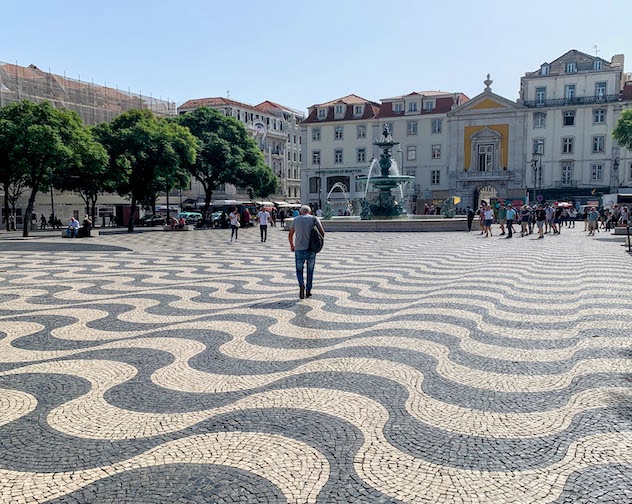
Another blogger I follow calls them “charming but deadly”. They can be slippery when wet, they are frequently uneven, often missing, and can pose a continual threat to your safety at any time of the year.
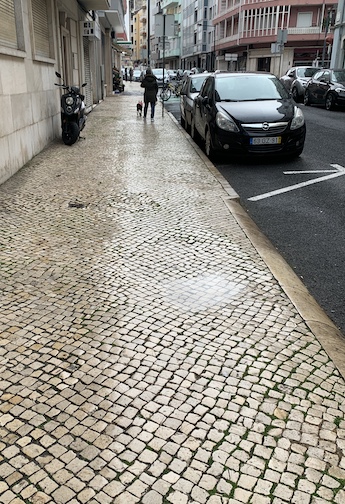
The Cold and Damp
Now, as winter in Portugal sets in, the phrase “cold and damp” has a meaning we would never have imagined while living in the US. But it sums up winter in Portugal. Let’s break it down.
OK, it’s not that cold
Portugal has some of the mildest winters in Europe, so it’s really not that cold. Temperatures here during January historically average lows of 9º C (48º F) and highs of 15ºC (59º F) and so far, 2024 is right on track.
(Our friends in most parts of US are laughing now. “What!? That’s springtime weather! It’s freezing over here!”)
And, yes, there are roses blooming by the building across the street from us.
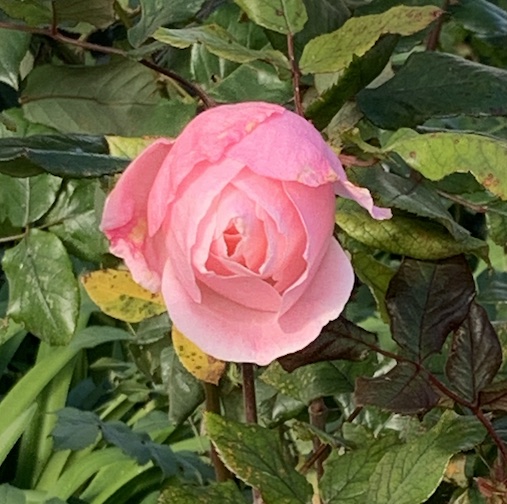
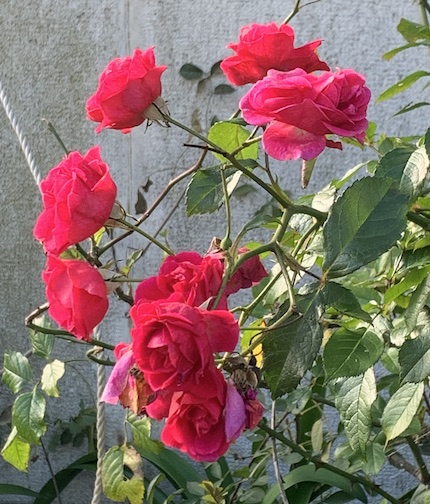
But it’s DAMP!
Average humidity in Lisbon in January is 80%. Again, not so unusual
So why does it feel different here?
I think there are two major factors that make winter here feel different from what we experienced in the US.
- Minimal insulation. Buildings here are usually made of concrete blocks and brick. Older buildings, like the one we live in, were not built with much (or any) insulation.
- No central heat source. Many buildings in Portugal, especially those built before 1980, like ours, do not have central heat, or any kind of heat, for that matter.
So over days and weeks in the winter, that damp cold settles into the stone walls of our building, chilling the interior and creating rivers of condensation on the inner walls. Sometimes it feels like a cave, with the temperature staying roughly around 18º C (65º F) throughout the day.
It also creates mold – something we thought only grew in hothouse conditions – from December through March…or later.
We don’t have a clothes dryer (a very common situation in Portugal), so we hang wet clothes out of the washer on a fold-up wire rack. On sunny days they can go on the balcony, but on dark or rainy days, they stay inside. Sometimes it takes two or three days for things to dry enough to be wearable.
How we handle the cold
So it might be 10º C (40º F) outside and about 18º C (65º F) indoors in an unheated apartment. That 18º (65º) temp, coupled with 80% humidity, creates a cold that can penetrate multiple layers of clothing. And it settles into your bones.
Now to be fair, we knew about the heat situation when we moved into this apartment. When we first looked at the place we were surprised to learn that when the owner renovated it he didn’t install any heating system. But we liked the apartment and the neighborhood and thought, “Well, that’s just how it is here. We’ll tough it out.” After all, we hardly used the central heat in our last place in Parede.
(What we didn’t take into account was that the Parede apartment was built probably 40 years later and likely had better insulation. It still had condensation, was cold, and grew mold in the winter. But somehow that didn’t register. We. Were. Moving. To. Lisbon. Dammit!)
We have two electric radiators that can each warm up a single room, plus two small heaters that we keep in the bathrooms. They don’t heat the entire apartment, so we tend to huddle in the living room where the big radiator warms us.
When we go to a different room, we expect to be cold. That is, unless we’re up and moving. Doing the morning cleaning is enough exertion to raise our body temperatures enough to be comfortable for a few minutes.
And on sunny days we get the benefit of some solar heat in the dining room. It’s a comfortable place for old men to write and old dogs to nap.
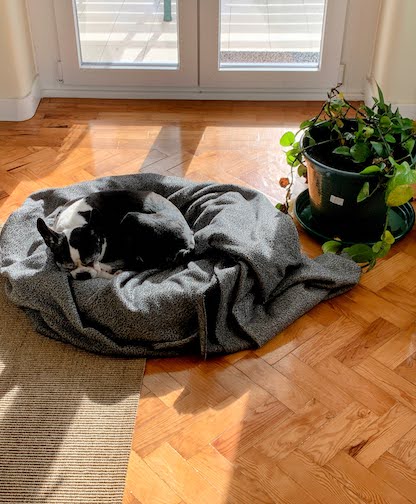
Tackling the humidity problem
We have a portable air conditioner, a stout little box on wheels that looks like a shiny white R2-D2. During the summer we used it maybe 10 times to cool our bedroom at night. It’s got a six foot long, 4” diameter exhaust hose that fits into a cloth veil that covers one bedroom window. With the window slightly open, the hose directs hot exhaust outdoors.
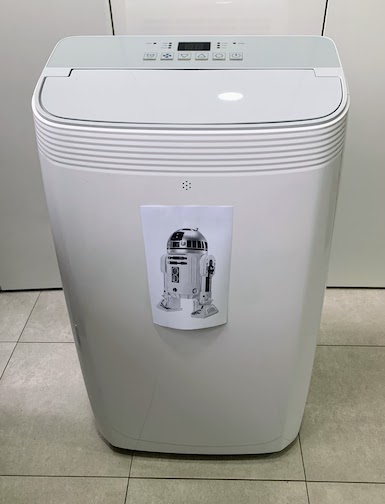
In the winter, R2-D2 can act as a dehumidifier. The instructions say to vent it to the outside, like in summer, but we’re letting the warm air circulate back into the apartment. This is the first winter we’ve had it, so we didn’t know what to expect. Over the holidays we set it up in the kitchen and ran it, hoping to eliminate some of the moisture in the apartment.
It ran overnight, with a hose draining into the mop bucket. In the morning, we poured out TWO GALLONS of water.
The second night, we put the clothes drying rack behind the dehumidifier, right in the path of the warm exhaust. By morning, the clothes were crisp and dry, and we had another two gallons of water in the bucket.
Same thing on the third and fourth nights, and every night we’ve run it since – two gallons of water.
It’s still cold in the apartment, but at least it’s not as damp. The walls are dry. The clothes are dry.
Of course, every solution creates a new probl… er, opportunity. We’re now trying to figure out what to do with all that water. It seems a shame to just pour it down the drain.
No Whining on the Yacht
Now if you think that all sounds like a litany of complaints, you’d be mostly right. But it’s also there for the benefit of any readers contemplating a move to Portugal (or probably anywhere in southern Europe).
Everything here ain’t like what you’re used to back home.
But, of course, depending on your location, your budget, your preferences, and your tolerance levels, your experience may be much different.
We’ll grumble about the cold and damp, but we also know that we live like this by choice. We could afford to buy more heaters and pay the higher electric bills that would result. We have options.
Mary recently read a blog post written by Connie Schultz , the journalist and author. (She is also married to Senator Sherrod Brown of Ohio, but don’t refer to her as “his lovely wife”.) In her article, Connie described a phone conversation she once had with her book editor. It was shortly after Sherrod was elected to the Senate and just before her second book was published.
Connie was grumpy and complaining about some edits that had been suggested. Her editor listened patiently for a few minutes.
Then she said, “Connie, no whining on the yacht.”
That stopped Connie in her tracks.
She wrote that she and Sherrod did not own a boat of any size. Their “yacht” was “the privilege of public service” which gave them positions and platforms that most people do not have.
It became a “marital mantra” for her and Sherrod. We have adopted it, too.
Our yacht is one we think we share with many of you. It is a place of relative security. It is a safe place to live that can be as comfortable as we choose to make it. It has closets with warm clothing and blankets. It has a pantry stocked with food sufficient for today and tomorrow, with more readily available.
No whining on the yacht.
When we forget how lucky we are – how privileged we are – those five words bring us back to reality. The words remind us that there are millions of people in the world who might only dream of the life we live.
We see their pictures in our news feeds. Adults and children, displaced from their homes by conflict or famine or natural disaster. Often injured and bloody. Exposed to the elements. And hungry. Always hungry.
We see them on the streets of our city, often sitting on scraps of cardboard to insulate their bottoms from the cold calçadas. Sometimes looking directly at us. Sometimes with their head bowed. Always holding an outstretched cup, hoping we will drop in a coin.
Sometimes we do, though we know it will probably do very little to change the person’s situation or the circumstances that brought them there.
One thing we all can do
The posts on this site reflect the interests we share with you, food being one of the biggest. So when we think about making a difference in the world around us, we think about how to address the global food crisis. A coin in a cup is hardly a drop in the bucket, but we can make more substantial contributions to organizations that work on the front lines to address hunger.
Several years ago we wrote a post called A Serious Note and asked you to join us in making contributions to the United Nations World Food Programme. We’ve updated that note again this year and once more ask you to consider making a donation.
In a world where we can celebrate food, no one should go hungry.
Well…that got heavy
Usually in this part of the post, we’ve got something lighthearted or humorous to say about whatever topic we’ve covered. That’s difficult to do today. Making a joke after talking about global hunger seems inhumane.
We’ve entered 2024 with a mix of worry and determination.
We are worried about the events we see unfolding in the world around us. Escalating armed conflicts in historically unstable regions of the world. Continued political dysfunction in the United States and the rising spectre of authoritarianism. The growing threat of accelerating climate change.
While we would like to be blithely optimistic that all of those things will get worked out while we watch from the sidelines, we know better. So we are determined to do our part to understand the challenges, sort out the issues, take constructive action, and encourage others to do the same.
We may live on different yachts, but we’re all in the same lifeboat.
More to come
Don’t worry, we’re not going to start posting political rants here. But some of what we learn and do will inevitably add texture to the stories we tell.
We are looking ahead to the year ahead. We have two trips outside Portugal in the planning stages. We’ll continue to explore Lisbon and its environs. There are plenty of food stories here that have not been told. And there’s probably a surprise or two waiting for us in the months ahead.
We’re happy you’re along for the ride.
Until next time / Até a próxima vez
Mary and Mike
The Cook and The Writer
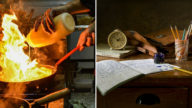
What makes you optimistic about 2024? We’re compiling a big list to keep us focused on the positives. Add your suggestions in the comments below or via the Contact Us form.
The featured image at the top of the post is a CC0 licensed photo by Suresh Shinde from the WordPress Photo Directory: https://wordpress.org/photos/photo/893621f898/
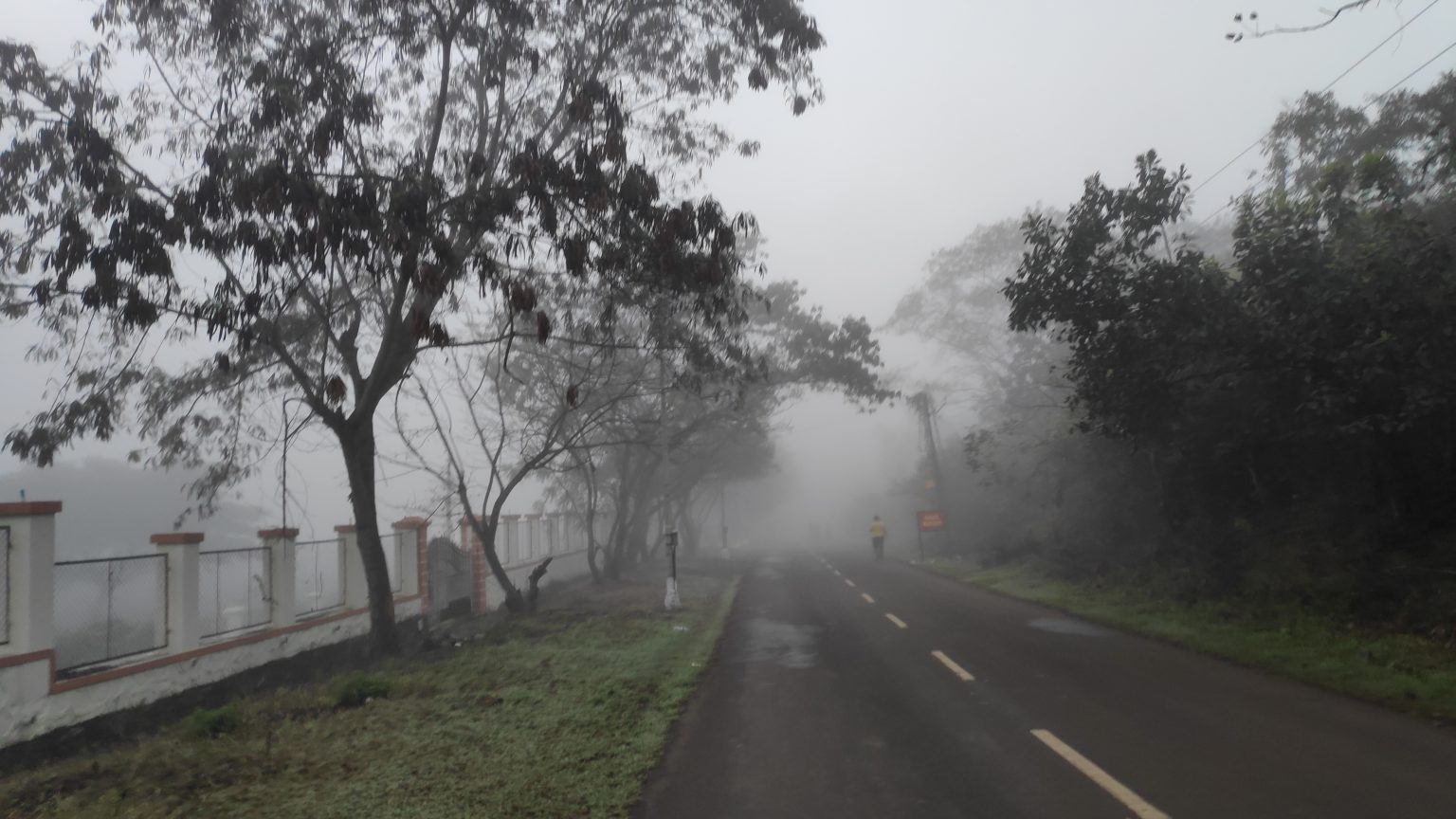

Hello Mike & Mary!
I really enjoyed your blog and love the mantra! What gives me hope is our grandchildren, who also give us a reason to strive for and support sane politicians. (Our Alli is expecting baby #2 – a girl – in February)!
Cheers to 2024!!!
Hi Mike and Mary. What keeps le optimistic about 2024 is that I am able to keep living here. As an American, I am very worried about Donald Trump destroying the country and impacting the world negatively. I am optimistic that enough people have had enough of the chaos and will re-elect a sane person as President. Thank you for you most enjoyable take on this cold and damp winter.
Great post! Love the saying! It’s a clever reminder. ❤️
Take care and be well,
Nan
Great post guys!! Love the new mantra!! Enjoy your weather, sounds tolerable. Here in Wichita, KS this morning it 0 with a -21 wind chill. Most of the country is in the freezer for the next few days.
What a great read. It got me through my half hour on the treadmill. No outside running Mike. 22 degrees and counting backwards.
What will your Yatch do with all that water?😅
Have a great one M&M. We are also in travel planning stage. It involves Portugal and two other couples. I’ll share more if it materializes
John
Hey Mike and Mary!
Friendship gives me hope for 2024! Friendship and human connection keep us well and spirited! Even in the midst of earthly chaos, investing in friendship is a still a proven and relatively uncomplicated coping strategy! Thanks for continuing to write and share.
I will most assuredly be incorporating ” No whining on the yacht” into my life. Seeing you in my inbox is always a bright spot in my day.
Great post! Can’t wait to discuss the 2 gallons of water with David. And I feel you with the mantra. First world problems for sure and a nice reminder of all we have.
Wow, I could feel you post right down into my bones! LOL, we’re a year ahead of you in living in a building built in 1910 with no heat and no air con and no insulation. After our first week unable to dry clothes inside on the rack, we sprang for a lovely drier that we use when it’s rainy and it makes a huge difference. Hanging things outside in the sun is still the best, of course. And we have progressed from a couple portable electric heaters all the way to, now, three portable butane tank heaters and wow, do they work well. (Yes, we have carbon monoxide detectors!) BTW, our electric heaters pointed out another issue in our 114 year old building: our electrical service is limited and we can only run a few items at a time without blowing a circuit. Like you folks, though, we adapt and we constantly recognize how fortunate we are to live in the heart of Lisbon and all its charms and treasures. And thanks for your reminder and suggestions about helping others. Muito obrigado!
Nicely done! We, too bundle up inside and then realize that it’s not so cold when we go outside. Although we have heating we rarely use it and instead use area heaters for the rooms we occupy.
When you find a way to reuse the dehumidifier water (we run two of them), let us know. It seems like such a waste to dump it in the sink – especially when there are so many people and places that need water.
Thanks also for the World Food Programme link. Love the idea of promoting it on the blog!